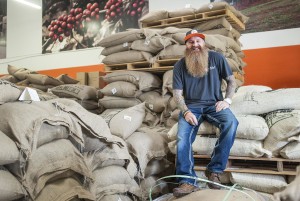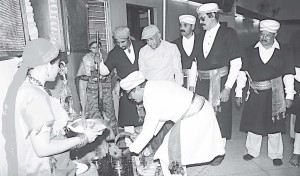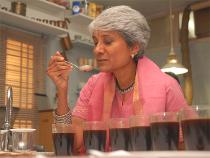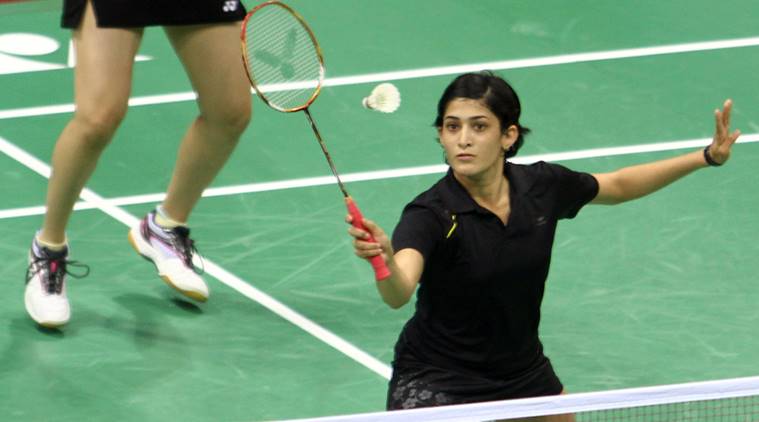Coffee – the fuel that powers legions of tired-eyed Orange County workers every morning – doesn’t truly come from a cafe, a bag or even a bean.

Standing in an Orange warehouse, surrounded by more than 300 tons of imported coffee beans, Bodhi Leaf Coffee Traders founder Steve Sims’ eyes gleam as he points from bag to bag, explaining the rich history behind each, going all the way back to “coffee cherries” gathered by the hundreds of international farmers he networks with. The precious pits of these cherries, known as coffee beans, can yield all kinds of flavors and sensations depending on how they are harvested and roasted.
With its Orange headquarters, an Anaheim Hills cafe and two new locations coming soon to Santa Clarita and Placentia, Bodhi Leaf works to bring the cream of the world’s caffeinated crop to hundreds of roasters, stores and individuals.
Sims, 47 of Yorba Linda, wasn’t always a coffee man. Once in real estate, he had to scramble to find a way to make a living when the Great Recession hit. After chancing upon a container of top grade Sumatran coffee in his travels, Sims made connections that – like a coffee plant – would bear bountiful fruit.
Bodhi Leaf sources its beans with the intention of going well beyond what people have come to expect from their morning cup of joe. Once they’ve had the good stuff, there’s no turning back, Sims said.
“It kind of draws you in,” he said. “Once they cross that line, they’re not going back to gas station or commodity coffee. There’s an element to coffee and people in the coffee industry – people have a passion for it, want to learn more about it and talk about it.”
Sims doesn’t just know where each bag of beans in his warehouse comes from – he personally knows the farmers who’ve cultivated them. The Bodhi Leaf team networks with farmers around the world, including in coffee hotspots in Columbia, Brazil, Ethiopia, Kenya, Guatemala and Africa.
Sims said he and his team won’t sell beans before they’ve met the farmers in person, sometimes flying up to 36 hours to see what they’ll be getting in person. When they find something they like, they buy it at a premium to help ensure the farmers can make a living off their craft.
After a long journey, this worldwide parade of beans converges at the Orange warehouse. Customers in the front cafe can watch through a wall-sized window as staff stack mountains of bags in the warehouse or sit at the bar as beans whirl in a roaster behind the counter.
People, Sims said, like to know what goes into their – the more they know of the history and the process, the better that cup will taste. To this end, the shop has started holding classes once a month, offering insight into the history of coffee and techniques to get the most out of their beans.
Sims likens the growing trend of specialty coffee to craft beers – there’s an art to it that can get people hooked. His personal favorite, African coffee, can be an acquired taste for some, but once you’re a fan you won’t settle for less, he said.
“We’ve had people that drink gas station coffee their whole life come in to drink African coffee and ask ‘what is wrong with this!?’ But if they come in and try a few different coffees, they learn to appreciate it,” Sims said. “If you know what goes into it, it really makes you appreciate that cup more.”
source: http://www.ocregister.com / The Orange County Register / Home> Top News> News / by Jonathan Winslow, Staff Writer – jwinslow@scng.com / December 05th, 2016





